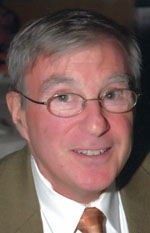Embracing Auschwitz, Forging a Vibrant, Life-Affirming Judaism that Takes the Holocaust Seriously, Rabbi Joshua Hammerman, Ben Yehuda Press ©2020 ISBN 978-1-934730-89-8, p. 226, plus appendices, $18.98.

WINCHESTER, California – The title of Joshua Hammerman’s book Embracing Auschwitz is incredulous. How can a rabbi, a pulpit rabbi charged with comforting his congregation, in light of the continental genocide and devastation inflicted on so many families, known as the Holocaust, and understanding the Jewish nation has a God-given obligation to obliterate the Amalekites, the biblical archetype of evil, ask us to accept and welcome this malevolence? The conundrum is resolved before one begins to read a single chapter. Hammerman, stressing there is nothing positive about the Holocaust, invokes his interpretation of the word “embrace” by quoting Abraham Joshua Heschel: “There are three ways we respond to sorrow. On the first level, we cry; on the second level, we are silent; on the highest level, we take sorrow and turn it into song.”
Embracing Auschwitz is the story of two competing Torahs—the Torah of Mt. Sinai and the Torah of Auschwitz. The Torah of Sinai demands Jews become a holy people by following its commandments, thereby possessing a true moral and ethical compass, and standing as a source of righteousness to the nations of the world. The Torah of Auschwitz reinterprets biblical dicta, particularly Deuteronomy 30:19, “I have set before you this day life and death, blessings and curses. Now choose life, so that you and your children may live.” Through dozens of stories, tales, and vignettes, Embracing Auschwitz proclaims the Torah of Auschwitz’s message: “The ultimate goal of Judaism is to defeat death and enable life to emerge triumphant.”
The Torah of Sinai demands that Jews live, meaning remain alive, through its laws and ordinances (Leviticus 18:5). The Torah of Auschwitz perceives this decree differently, it’s not about living. Hammerman tells the story that during a Cholera epidemic in 1848, Rabbi Israel Salanter, directed his followers to disregard the fast of Yom Kippur to preserve their health, and “famously, ate in front of them.” According to Hammerman, Hitler believed Darwinism meant the strongest survive. He was in error. Darwinism says the adaptable survive, and so does the Torah of Auschwitz. ”
Sean Spicer, first press secretary in the Trump administration, in January, 2017, at the very beginning of that administration, stressing the depravity of Syrian leader Bashar al-Assad for using chemical weapons against his own people said, “We didn’t use chemical weapons in World War II. You know, you had someone as despicable as Hitler who didn’t even sink into using chemical weapons,” which of course he did—Zyklon B—against civilian, particularly the Jews in Auschwitz. The Torah of Sinai, through rabbinic commentary, argues there are seven types of thieves, the worst is one who deceives people. The Torah of Auschwitz, saying Holocaust denial is the worst—it is the “canary in the coal mine”—demands the commandment to eradicate Amalek is really “about keeping alive the memory of the Holocaust.”
One more illustration. The Torah of Sinai requires separation, whether the little known commandment not to blend wool and linen in the same garment (Leviticus 19:19), or the profound segregation of people into “the chosen” and “not chosen.” Hammerman writes, “The Torah of Auschwitz compels us to eradicate those boundaries. I believe we have entered a world of connection rather than separation and distinction.” He calls it moving on from kosher (separation) to kesher (bridge); from the old and the new.
The Appendix, presenting a digest, a summary, of forty-five “mitzvot” gleaned from the Torah of Auschwitz, insists, as Hammerman adeptly notes, that because the history we call the Holocaust is at the heart of being Jewish, the first obligation of Jews is embracing the role to be “surrogate witnesses as the last of the actual witnesses, the survivors, depart. Embracing Auschwitz is a skillfully-crafted argument to do more than “never forget,” it demands we actively “Remember”.
*
Fred Reiss, Ed.D. is a retired public and Hebrew school teacher and administrator. His works include: The Comprehensive Jewish and Civil Calendars: 2001 to 2240; The Jewish Calendar: History and Inner Workings, Third Edition; and Sepher Yetzirah: The Book That Started Kabbalah, Revised Edition. He may be contacted via fred.reiss@sdjewishworld.com.
As a “newly aware Jew, I have so much to learn. I am mesmerized by your insights. Living on the prairies of Kansas I don’t get much exposure to such erudite intelligence. I volunteer and publish a bi-monthly nonprofit “Prairie Connection – The truthful and authentic voice of the prairies since 1994.” It has helped uncover folks with Jewish roots living on the prairies who are now emerging. It is interesting to me to note that I have been using in the publication for a year or more, “Always Remember, Never Forget.” And now you suggest it! We are actively working to establish a fellowship in a no longer-used Prebysterian parsonage and are establishing an on-site library reading room. It is books like yours that we would welcome.